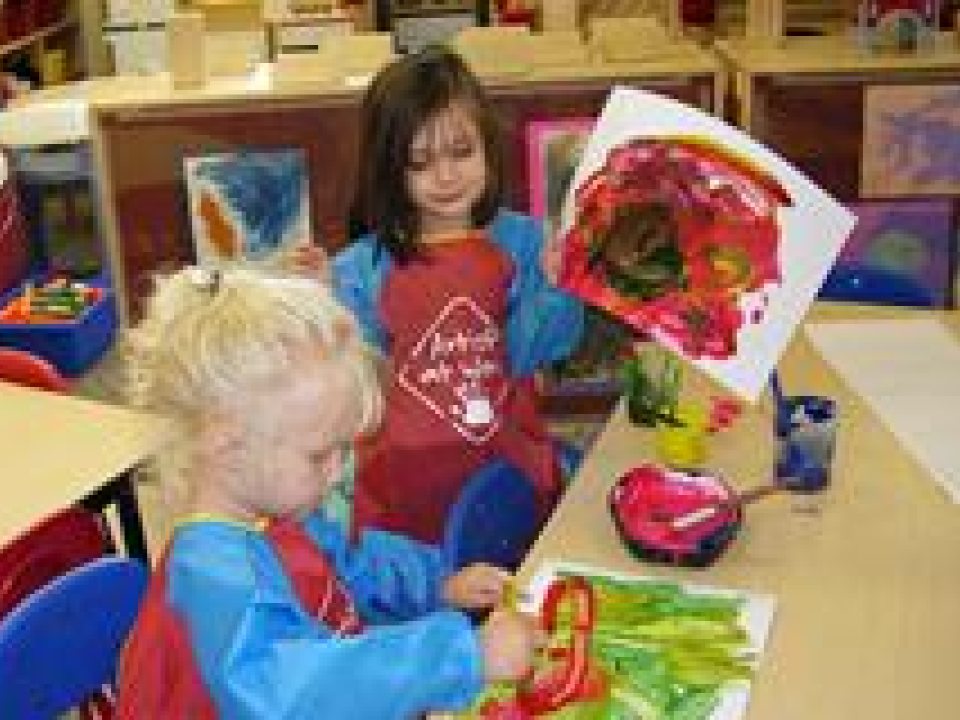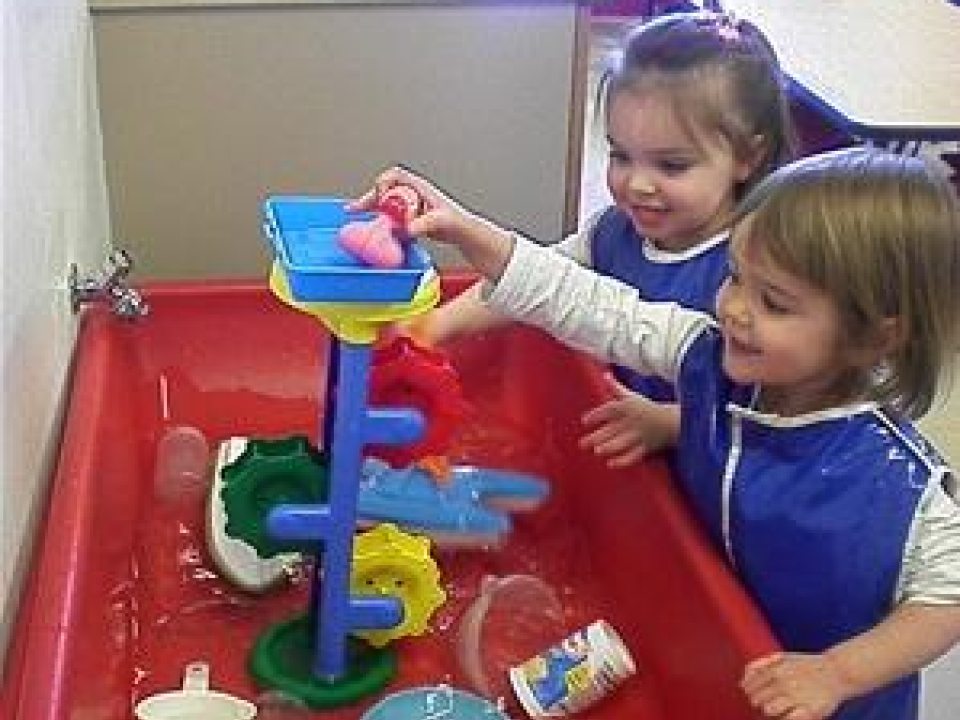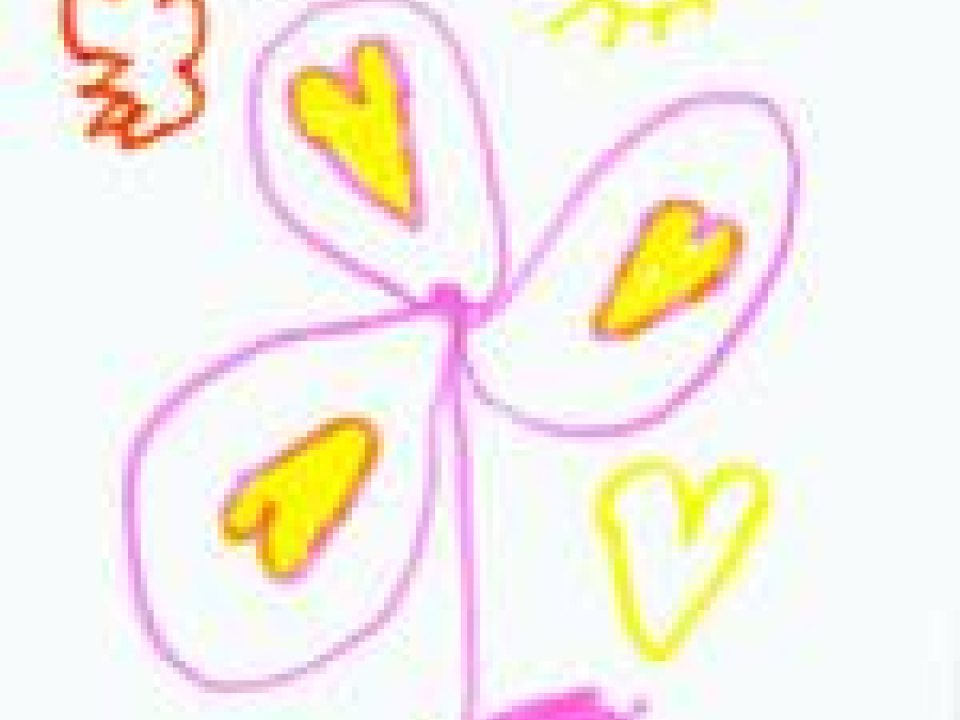Curriculum Development
Our toddler and preschool programs follow the curriculum recommendations made by the New York State Education Department and the National Association for the Education of Young Children, the largest organization of early childhood leaders and educators in the United States. These groups provide specific guidelines for preschool programs based on extensive research in the areas of early childhood education, brain development and effective teaching strategies. We consult with area kindergarten teachers regularly to ensure that our program meets their criteria for school readiness.

Toddler Curriculum
Our toddler program focuses on providing individual attention, support, and guidance while children play, learn, explore, and grow. The curriculum emphasizes motor development, language skills, and social development. A typical day might include learning a new song, sitting on a lap for a story, dancing with scarves to music, catching bubbles on the playground, painting at the easel and washing dolls in the water table.
Toddler Room curriculum components include:
- Music and movement
- Language and cognitive development
- Science and sensory experiences
- Perceptual motor activities
- Circle time
Preschool Curriculum
Phonemic awareness
Research indicates that phonemic awareness is perhaps the most critical precursor to reading and writing. Phoneme-related activities include games, songs, projects and stories that focus on rhyming, recognizing syllables and exploring the connections between letters and sounds.
Literacy and writing
We create a print-rich environment by
- labeling familiar items in the classroom
- providing well-stocked book corners with books, which are rotated based on themes and interest
- displaying written materials such as calendars, posters and charts throughout each interest area
- by encouraging children to write notes to parents, to make signs for block structures they have built, to label their artwork and to practice writing their names

Math and logical thinking
Children explore mathematical and reasoning concepts such as one-to-one correspondence, seriation, classification and counting. We focus on everyday activities that are meaningful to the children. For example, children might count pennies to purchase items at a pretend grocery store or sort blocks by size.
Science
Our science activities are designed to stimulate the child's sense of wonder about the physical and natural world. Children learn to observe, question, experiment and reflect by watching beans sprout in cellophane, hatching butterflies, and mixing liquids and solids. They take nature walks, create volcanoes with baking soda, and plant seeds and flowers. In addition to planned activities, we have science learning centers that rotate throughout the year. These units include books, posters and hands-on materials on topics such as sea life, rocks and minerals, bugs, children's drawings of a flower, frogs and toads and salamanders, weighing and measuring, dinosaurs and space exploration.

Creative Art
We believe that the process of creating art is more important than the finished product. Children explore with color, design and texture, using a wide variety of media. They gain confidence and derive the greatest satisfaction from pictures or projects that they have created themselves, without models to copy or adult interpretations of what their artwork should look like.
Music and movement
During music time, children participate in a wide variety of activities designed to enhance their understanding of music, movement and rhythm. Children learn new songs, march with instruments, bounce balls on a parachute, dance with ribbons and maneuver through obstacle courses.
Computer literacy
Preschoolers have access to computers throughout the day. We have a wide assortment of developmentally appropriate computer software designed to challenge and teach children at each level of development.
Perceptual motor skills
Children develop eye-hand coordination and fine motor skills through activities such as tracing letters, building with blocks and Legos, stringing beads and following patterns with attribute blocks.
Themes
Themes are utilized to enhance and expand our curriculum. Typical themes include:
All About Me
All Kinds of Families
Space Exploration
Personal Safety
People with Special Needs
Wild and Zoo Animals
Butterflies
Frogs, Toads, and Salamanders
Camp Out
Carnival
Pajama Party
Beach Party
Farm Animals
Dinosaurs
Insects
Fire Safety
Special visitors and field trips
Throughout the year we invite visitors to enhance the themes we are developing in the classroom. These visitors include firefighters, police officers and musicians. Each fall we take a trip to an apple orchard and each spring we visit a farm. During the summer we have cookouts or picnic lunches every Friday.